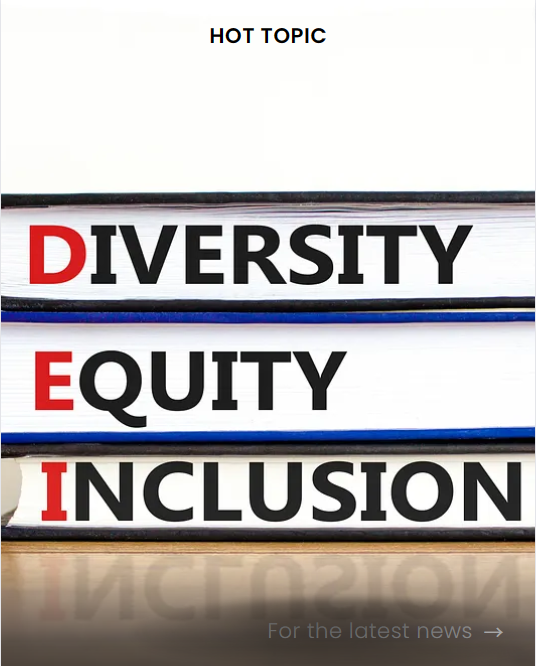Ohio, Texas, Florida, South Carolina, and other states have passed or are considering bills that prohibit universities from requiring diversity-related coursework or training for faculty and students.
If you think the timing is a coincidence, you’re not being honest with yourself.
Donald Trump transformed America.
I’m not here to debate 45’s actual policies. Some were good. Some were OK. Some were horrific. But what Trump almost single-handedly did in his long four years in office was give the presidential seal of approval to a part of America that had long ago been relegated to the fringes of society.
It’s not that we had dismantled racist systems or achieved a post-racial world before Trump — far from it — but we’d at least made it clear to the most extreme in society that we weren’t going to tolerate their bigotry.
It was just over 15 years ago when George W. Bush gave a keynote speech to the NAACP. And just over 20 years ago when he implored Americans not to blame all Muslims for 9–11. Even 40 years ago, Reagan proudly told our nation that we have a special relationship with Mexico and that our immigration policy should reflect that relationship.
It’s not that Reagan and George W. were civil rights giants, but they also weren’t actively fanning the flames of hatred.
Since the arrival of Trump on the political scene, the number of Americans publicly and proudly brandishing swastikas alongside American flags has skyrocketed. Right-wing extremist rallies, where crowds chant slogans urging Whites to “take back America,” are commonplace.
Hate crimes against Jews, Asians, and others have hit 30-year highs. We now have multiple well-attended conferences where speakers spew every imaginable conspiracy theory. Law enforcement in many cities is now filled with supporters of hate groups.
But it’s worse than that. Trump showed us you could win elections using racial and ethnic slurs. By calling African countries shit-holes. By talking about good people on both sides. By yelling about Mexican rapists.
Now that last part is pure chutzpah.
We can debate whether Trump became the face of renewed racism because he’s just a narcissist and supports anyone who says nice things about him. Or whether he himself is a racist.
I’m reminded of when Trump was asked about Vladimir Putin after praising him.
“I never met him. He said nice things about me.”
Trump was always first and foremost about Trump. If you praised Trump, you were A-okay in his book.
So if the racists and Nazis and fringes say nice things about Trump, it wouldn’t be a far stretch to think Trump would scratch their backs too.
And scratch he did.
Either way, even Republican friends of mine are finally acknowledging Trump and his fancy invite-only dinners with White supremacists at Mar-a-Lago aren’t good for us. You better believe people who get close to Trump have been pre-cleared.
Trump made it cool and provided a safe space for politicians at the highest levels to tap into the most extreme among us. Georgia’s Marjorie Taylor Greene and Arizona’s Paul Gosar are obvious examples.
Now it’s become more than just hate rhetoric. For the first time in decades, we have numerous elected officials across the country proposing legislation aimed at reversing racial progress.
Unfortunately, the bandages that kept society’s most avid racists under wraps were ripped off by Trump. As a result, instead of talking about how to fix things, we now have to spend our energy confronting efforts in numerous states to dial back racial progress.
Under newly introduced Ohio Senate Bill 83, the state would only provide public funds to a private college so long as:
The institution does not require diversity, equity, and inclusion courses or training for students, staff, or faculty.
Since nearly every private institution of higher learning receives public funds, this new bill would essentially end required diversity training in higher ed at private colleges.
For state schools, like Ohio State, University of Toledo, Ohio University and Kent State, the rules are more straightforward. The new bill outright:
Prohibit[s] any mandatory programs or training courses regarding diversity, equity, or inclusion.
After years of slow progress toward more racially aware, inclusive, and diverse spaces, it’s now been decided that those diverse spaces are a threat to society. That we need to stop talking about racial and ethnic understanding. That we no longer need to learn how to better interact with our Black brothers and sisters and include them in our progress.
This and similar bills all come under the guise of combatting so-called diversity training that bill supporters falsely claim teaches that Black people are superior. Or that demonizes White people. Or that unfairly elevates marginalized groups over White people. Or that criticize our precious America.
Oh, the irony.
I’ve taken numerous diversity courses, attended diversity symposiums, served on panels, and trained numerous organizations and universities in Diversity, Equity, and Inclusion (DEI) principles, but I’ve actually never encountered training that seeks to foster some Black Supremacist theology or that seeks to convince White people they’re the lowest of the low. Or that suggests we ought to dismantle America.
Diversity, equity, and inclusion training overwhelmingly focuses on education and bridge-building. It’s typically presented in kind and nonjudgmental ways. With compassion and empathy. It’s hyper-focused on progress, not finger-pointing.
Now, I’ll be the first to admit that our diversity training needs an overhaul.
But not because White people are now oppressed by it.
Or that most people who attend training now think America is worse than Iran’s regime.
Those are fibs.
DEI efforts don’t need an overhaul because more people are being exposed to the hard truths of what Black people endure daily in this nation.
They need an upgrade because they’re falling short. We need to find ways to make them more effective to create more inclusive and equitable spaces.
I’m sure those who’ve dedicated their lives to criticizing every effort to address racial inequities can come up with select times when diversity training took an ugly turn. Anything run by humans will have flaws.
But the answer to inadequate diversity training isn’t to stop requiring it. It’s to improve it.
Nobody in power is asking that we get rid of capitalism or American democracy just because we’ve got some problems to work out. I haven’t heard any of these politicians calling for the end of America just because we have issues to confront.
We aren’t going to change the minds of the most extreme. But we can take back the conversation on DEI.
Diversity, by definition, means all of us.
Creating wider and more inclusive spaces and providing more opportunities for people who’ve had to jump more hurdles isn’t going to result in swaths of White people not making it in this world.
But it will foster a society in which we can focus on creativity, innovation, peace, and harmony, rather than divisiveness.
Written by:
Jeffrey Kass







